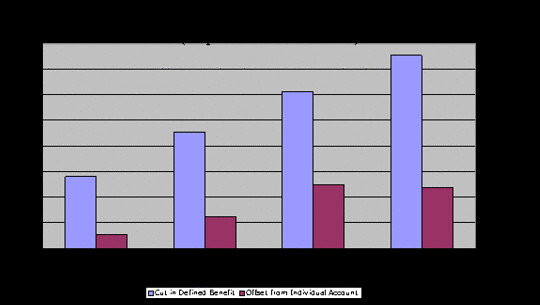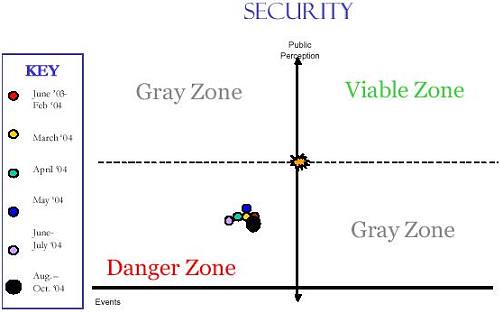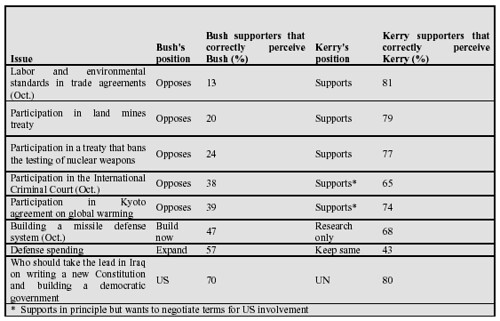Heidegger argues that it would be a misinterpretation to understand this distinction between the human world and the animal “world” as “simply a question of a qualitative otherness” and “especially not a question of quantitative distinctions in range, depth, and breadth—not a question of whether or how the animal takes what is given to it in a different way.” In other words, it would not decide this question to understand “what it’s like to be a bat,” because it is a matter of “whether the animal can apprehend something as something, something as a being, at all.” Given this sort of distinction, Heidegger finds the animal to be “separated from man by an abyss.” The organism is connected to its environing world or disinhibiting ring, impoverished as it may be, by adapting to this world or ring in such a way that it cannot take a stance (
Haltung) or a comportment (
Verhaltung) as “something independent in its own right which then adapts itself.” While it may seem that openness would be the characteristic peculiar to human comportment, this adaptability and the resulting captivation of the organism indicate its intrinsic “openness [
Offenheit] for . . . which permeates its whole behavior.” Thus, it is not the openness to beings that is lacking in the “fundamental structure of animality.” That structure is the openness of captivation, “the animal’s struggle with its disinhibiting ring.”
The question is what kind of openness this struggle entails; furthermore, what is meant by the term “world” such that the animal both “has a world” and “does not have a world.” One way of approaching this question, Heidegger notes, is to examine something “which belongs to the innermost essence of life, namely what we call death.” On this point, “it is questionable whether death and death are the same in the case of man and animal,” because “in captivation . . . certain quite determinate possibilities of death, of approaching death, are prefigured.” In Heidegger’s judgment, the animal cannot die in a human sense but “can only come to an end.” The tick finishes its struggle with its tripartite disinhibiting ring and comes to an end. The struggle of captivation exhibits the nature of the elements of an animal’s world as “beings in their respective accessibility.” The animal’s “openness for . . .” and “access to . . .” permits it to live in an “environing world” (or disinhibiting ring) and thus to “have a world,” but only in the sense of an object upon which to direct its “instinctually driven behavior.” However, this openness for, or access to, beings is “something that only we are capable of experiencing and having manifest [
offenbar] as beings [
als Seiendes].” Thus, the animal has a world only in the sense of having that which disinhibits, and having this captivation prefigures the “determinate possibility of death” to the extent that its “life” was never fully lived. The animal’s life is a death-in-life. Whether this is the distinguishing characteristic of animality depends not on the “presence” of death through its prefiguring in life (for that is all too human), but on the kind of “openness” to this experience that animals “have.” This “having” of openness, as we will see, vanishes into its opposite of “not-having.”
In a sense, the animal is too open to the world, so much so that it becomes completely absorbed (
eingenommen) in it. “Absorbed [
Im Eingenommensein] as it is into this drivenness [
Umtriebe], the animal nevertheless always pursues its instinctual activity [
Treiben] in being open [
im Offensein] to that for which it is open.” In this way, the bee in its flight becomes so absorbed in its disinhibitors, e.g., the sun and the length of its flight, that it “is simply given over [
einfach überlassen]” to them without being able to grasp them as such, “without being able to reflect upon them as something thus grasped.” Before we assume that this absorption is a mark of inferiority, we should note that Heidegger reserves high praise for this openness intrinsic to animal captivation: “[animal] life is a domain which possesses a wealth of openness [
des Offenseins] with which the human world may have nothing to compare.” However, Heidegger continues to characterize animal “life” as a deprivation. Thus, its having a world is a not-having insofar as its captivation amounts to a “withholding of the possibility of the manifestness [
Offenbarkeit] of beings” such that the animal “can never apprehend something as something.”
In Kantian terms, the animal apparently lacks the transcendental unity of apperception by which an “I think” accompanies all my representations, but Heidegger rejects such an idealism in favor of a primordial
archē upon which any Kantian spontaneity would be grounded. In Heidegger’s terms, it is the “as” structure that is deprived from animality. By contrast, this as-structure is the basis for a negative image of the relationship of the human being and his or her world. The environing world (disinhibiting ring) of the animal is “open” (
offen) but not “unconcealed” (
offenbar); the animal has access to its world (
Umwelt) but does not have the negative distance from it necessary to relate to it. The animal “is” its relationship with the environing world. Thus, its “having” this world fails to achieve enough “not-having” or distance from it, and so its “having” dissolves into a dispossessing unity with its disinhibitors.
As we have seen in chapter four, this phenomenon is at stake in Dennett’s claim that “you are the loop.” He attempts to critique the Cartesian notion of the “thinking thing” by identifying consciousness with its “loop” of distributed processes in the
milieu intérieur. Once Descombes’s critique of this inner space of consciousness is registered and a form of “objective spirit” is recognized as constitutive of the “loop” which makes consciousness possible and “contentful,” this “outsourced self” could be called the “disinhibited self” insofar as it is “fragmented into shifting coalitions” which render the notions of “having” a self and “having” a world indistinguishable. What prevents this disinhibited self from being “poor in world”? What makes the recent emphasis on “sociality” different from an albeit very complicated disinhibiting ring? These questions require further examination of the way in which captivation to the disinhibiting ring is “awakened from” (or, in Hegelian terms as we shall see, “overcome”).
Heidegger reports a laboratory experiment in which a bee’s abdomen was severed while sucking honey, and without recognizing this the bee would carry on sucking even while the honey runs out of it from behind. In Heidegger’s analysis, the bee is “taken [
hingenommen] by” its food because of its “instinctual toward . . .” (
triebhaftes Hin-zu), which “excludes the possibility of any recognition of presence [
des Vorhandenseins].” By being so taken by its food, the animal is prevented “from taking up a position over and against this food [
sich dem Futter gegenüberzustellen].” It does not have the negative relationship with its environing world which is necessary to recognize that world as such.
Unable to deactivate its instinctual drive, the captivated bee of this experiment fills itself with food and is always rendered empty. Heidegger discusses this “being left empty” (
Leergelassenheit) as a moment in Dasein’s experience of the world. In fact, he discusses it a great length in the lectures of 1929-30 as a manifestation of the phenomenon of boredom. At such moments of being-left-empty, the object of experience refuses itself by offering nothing to the subject and leaves the subject bereft of content in its absorption into its environing world. That is, instead of being completely “taken by” the object and absorbed in the experience of it, the human being experiences this emptiness as boredom and recognizes it as such. Emptiness is, or constitutes, content. That is, the human being awakens to its own captivation during these moments of deactivation of instinct. Concrete possibilities are withheld or held in suspense during such moments of human boredom.
While the honey for the bee never ceases to be a concrete possibility for fulfillment even in spite of its continual being-left-empty in a literal sense, human possibilities lose their effectiveness during these moments of being-held-in-suspense (
Hingehaltenheit) and being-left-empty (
Leergelassenheit). “This means, however, that those beings refusing themselves as a whole do not make a telling announcement concerning arbitrary possibilities of myself, they do not report on them, rather this telling announcement in such telling refusal is a calling [
Anrufen], is that which properly makes possible the Dasein in me.” Thus, a “calling of possibilities” does not point to this or that concrete possibility but to “whatever it is that makes possible [
das Ermöglichende], sustains, and guides all essential possibilities of Dasein.” In other words, by suspending my captivation to objects and experiencing them as empty and as “telling refusals” to attention, they effect a “telling announcement” which draws my attention not to another concrete possibility but to the source of all “possibilization” (die ursprüngliche Ermöglichung).
Profound boredom becomes the decisive experience that awakens Dasein to the “it is” of a being and thus effects the passage from poverty in world to world. In Giorgio Agamben’s account of the anthropology implicit in this argument, the issue at stake here is “anthropogenesis, the becoming of Dasein of living man.” Agamben then claims that Dasein’s awakening from its captivation to its captivation indicates that it is “simply an animal that has learned to become bored.” In our terms, how does the “disinhibited self” experience boredom and thereby awaken to its captivation?




